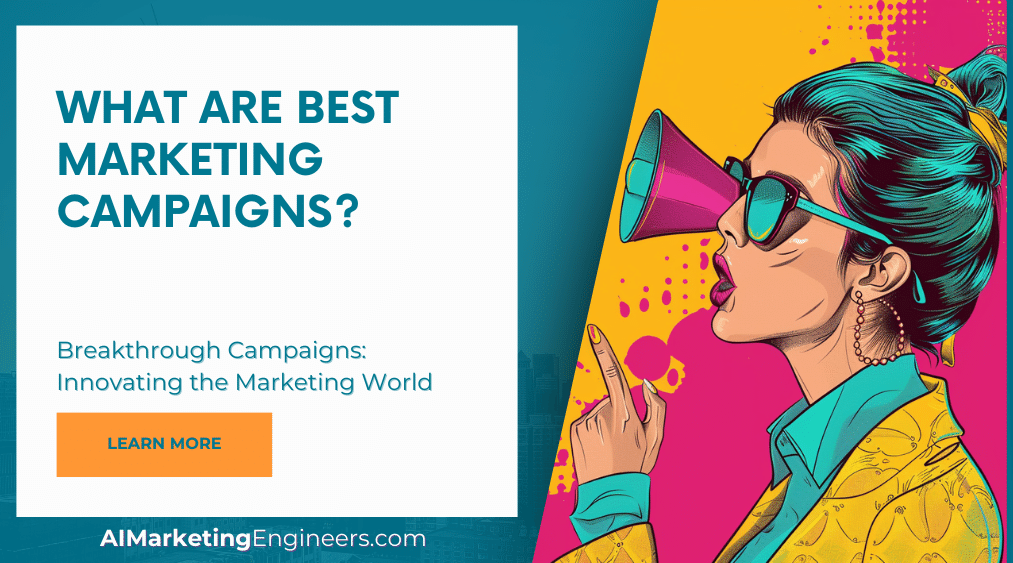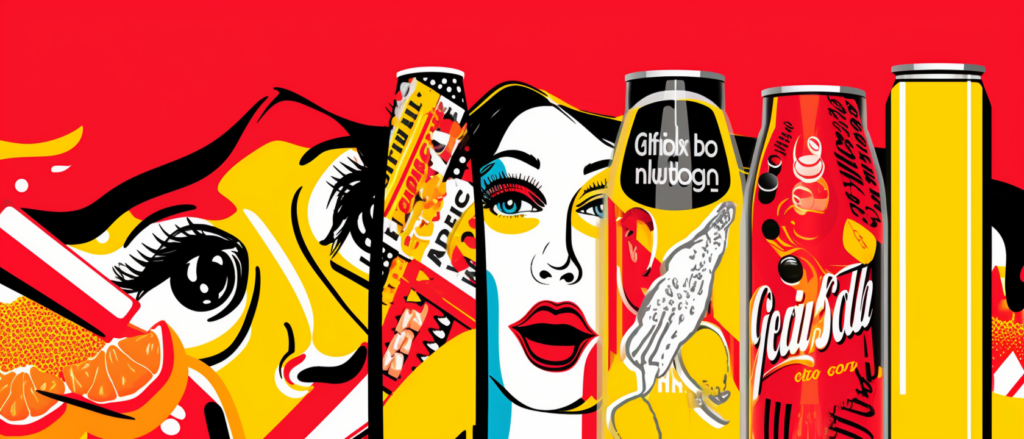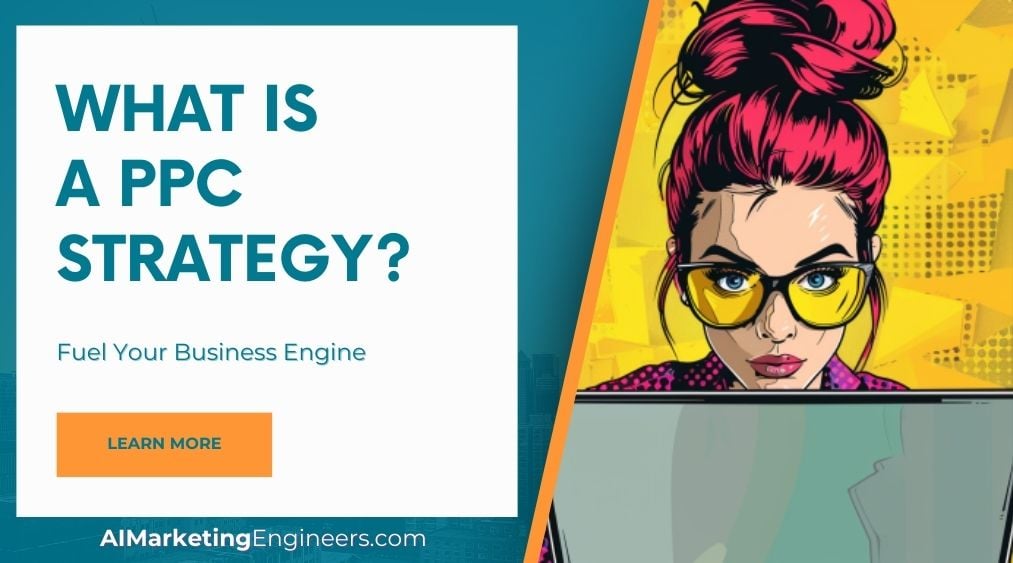Key Takeaways
✅ Message Alignment: Ensure that your campaign's message is not only clear but also aligns with the core values and essence of your brand, fostering a sense of authenticity that resonates with your audience.
✅ Targeted Creativity: Develop campaigns that speak directly to the interests, challenges, and aspirations of your target audience, making use of creative and innovative approaches that stand out in a crowded marketplace.
✅ Engagement and Action: Craft campaigns that not only capture attention but also encourage engagement and prompt a clear call to action, converting interest into tangible outcomes for your brand.
Introduction
Are you keen to ignite the market with your brand's presence, but feeling overwhelmed by the endless stream of marketing strategies? Fear not! In this must-read article, we'll unveil the industry's most iconic marketing campaigns, mapping out their road to legendary status. Imagine turning heads with your own innovative campaign that not only resonates with your audience but also becomes the topic of every conversation.
Whether you're a seasoned marketing veteran or a newcomer eager to make a big splash, this article is your treasure map to crafting campaigns that not only spark interest but also inspire action, foster desire, and win the hearts of your customers. Dive in, and let's harness the magic formula that transforms a good marketing strategy into a great one!
What Makes a Good Marketing Campaign?
- Alignment with Brand Values and Messaging: Ensuring that the campaign reflects the core values and identity of the brand is crucial for authenticity.
- Creativity and Innovation: Campaigns that stand out often do so because they bring something new and creative to the table.
- Clear Call to Action: Whether it's to buy a product, sign up for a service, or engage with the brand, the action you want consumers to take should be clear.
- Target Audience Specifics: Knowing who the campaign is for and tailoring the messaging to resonate with that group is key.
- Memorability: The campaign should be memorable enough to stick in consumers' minds long after they've seen it.
- Engagement: Successful campaigns tend to foster interaction, be it through likes, shares, or discussions.
- Deliver Results: Ultimately, the campaign should meet the objectives it was designed for, whether that's increasing brand awareness, sales, or another specific goal.
Best Marketing Campaigns Study
1. Nike's "Just Do It" Campaign
- Message Resonance: Resonated with individual aspirations and motivation to succeed.
- Powerful Tagline: "Just Do It" has become an iconic slogan that transcends sports.
- Athlete Stories: Using relatable athlete stories to inspire and connect with their audience.
- Brand Revitalization: The campaign played a significant role in rejuvenating and reinforcing Nike's brand image.
2. FedEx's "Identity" Campaign
- Brand Messaging: Effectively communicated FedEx's reliability and efficiency compared to its competitors.
- Market Positioning: Highlighted its unique selling proposition, solidifying its position in the market.
- Timely Execution: The advertisements were strategically timed for maximum impact.
3. Old Spice's "The Smell Evolves" Campaign
- Guerrilla Marketing: Employed unconventional tactics to capture interest.
- Humor and Authenticity: Leveraged humor and an authentic tone to appeal to a broader demographic.
- Social Media Savvy: Capitalized on the power of social media for viral reach.
4. Audi's "Daughter" Campaign
- Emotional Connection: Tapped into strong emotions related to gender equality and empowerment.
- Bold Messaging: Took a courageous stand on a social issue, enhancing brand perception.
- Cultural Relevance: The message resonated with a societal shift, making it timely and impactful.
- Personalization: Fostered a personal connection with the consumer by individualizing product packaging.
- Social Engagement: Encouraged sharing both physically and digitally, amplifying social media buzz.
- Interactive Experience: Allowed customers to get directly involved with the brand through personalization.
These marketing campaigns capitalized on a variety of strategic approaches—from emotional storytelling and personalization to humor and social media savvy—to achieve remarkable results. When designing your campaign, consider the successful elements of these iconic examples and how they could be tailored to fit your brand and audience.
AI Marketing Engineers Recommendation
1. Understand the Audience
- Data Analysis: Utilize existing customer data, market research, and analytics tools to understand the behaviors, preferences, and needs of your target audience.
- Personas Development: From the data, develop detailed customer personas to guide the messaging and channel selection.
2. Set Clear Objectives
- SMART Goals: Ensure that your campaign goals are Specific, Measurable, Achievable, Relevant, and Time-bound.
- Alignment with Business Goals: Your campaign objectives should directly contribute to broader business outcomes.
3. Optimize the Channel Mix
- Multichannel Strategy: Deploy the campaign across multiple platforms (social media, email, search engines, etc.) to maximize reach and engagement.
- Platform Analytics: Use the analytical tools available on each platform to refine targeting and improve campaign performance.
4. Leverage Content Marketing
- Engaging Content: Create high-quality, valuable content tailored to your audience to build trust and authority.
- SEO Optimization: Ensure content is optimized for search engines to improve organic visibility.
5. Embrace Marketing Automation and AI
- Automation Tools: Use marketing automation tools to streamline campaign deployment and management.
- Predictive Analytics: Employ AI-driven predictive analytics to forecast campaign performance and customer behaviors.
6. Implement A/B Testing
- Test Variations: Test different elements of your campaign such as subject lines, visuals, and calls to action to understand what resonates best with your audience.
- Data-Driven Decisions: Let the results of A/B tests guide the scaling and optimization of the campaign.
7. Monitor and Analyze Performance
- Key Performance Indicators (KPIs): Track performance against your key metrics to evaluate the success of the campaign.
- Real-time Adjustments: Be prepared to make real-time adjustments based on performance data and market feedback.
8. Encourage Engagement and Feedback
- Interactive Elements: Include interactive elements like polls, quizzes, or contests to increase engagement.
- Customer Feedback: Solicit and analyze customer feedback to understand their experience and ways to improve.
9. Prioritize Customer Retention
- Retention Campaigns: Plan follow-up campaigns targeting existing customers to foster loyalty.
- Personalization: Use customer data to create personalized experiences and offers.
10. Evaluate Overall ROI
- Return on Investment: Calculate overall ROI by measuring the net profit against the campaign's cost, not just the revenue generated.
- Continuous Learning: Apply lessons learned from ROI analysis to future campaigns.
Conclusion
Effective marketing campaigns are the cornerstone of a brand's success, serving as a critical conduit between the company and its consumers. The case studies explored in this article illuminate the intrinsic qualities shared by outstanding marketing endeavors. Nike's "Just Do It" campaign, FedEx's "Identity" campaign, Old Spice's "The Smell Evolves" campaign, Audi's "Daughter" campaign, and Coca-Cola's "Share a Coke" campaign epitomize the power of clear messaging, authenticity, emotional resonance, and personalization in forming connections that ultimately convert to measurable results.
From these analyses, it is evident that beyond creativity and innovation, a successful marketing campaign should resonate with the brand's core values, spark engagement through relevance to the target audience, and encourage action through a compelling call to action. Whether revitalizing a classic slogan, leveraging humor and virality, or embracing social and personalized marketing, these campaigns exhibit an uncanny ability to tap into the public zeitgeist, yielding significant uplifts in brand perception and customer interaction.
As businesses and marketers forge ahead in an ever-evolving landscape, the wisdom culled from past successes acts as a guiding light. Excellence in marketing is not a happy accident but a deliberate orchestration of message, medium, and moment. Following the principles underlined by these illustrious campaigns can set the stage for your brand's marketing triumph.
FAQs
Question 1: What are some examples of successful marketing campaigns?
Answer: Successful marketing campaigns that have resonated with audiences include Nike's "Just Do It" campaign, Coca-Cola's "Share a Coke" campaign, and Dove's "Real Beauty" campaign. Each campaign effectively connected with consumers emotionally and presented a clear, memorable message.
Question 2: In what ways can a brand create a unique and engaging marketing campaign?
Answer: A brand can create a unique and engaging marketing campaign by first understanding its target audience, then crafting a compelling narrative or message that resonates with that audience. Utilizing innovative platforms, creating interactive content, and encouraging user-generated content can also enhance engagement.
Question 3: How can a company measure the effectiveness of a marketing campaign?
Answer: The effectiveness of a marketing campaign can be measured by setting clear KPIs (Key Performance Indicators) such as sales revenue, lead generation, conversion rates, website traffic, social media engagement, and any other relevant analytics that align with the campaign objectives.
Question 4: What are some common mistakes to avoid when creating a marketing campaign?
Answer: Common mistakes to avoid include not defining clear goals, misunderstanding the target audience, neglecting to test different elements before full-scale launch, not budgeting properly, ignoring the importance of good design, and failing to analyze and adjust strategies based on performance data.
Question 5: What are some trends in marketing that are currently popular?
Answer: Popular marketing trends include the use of artificial intelligence and machine learning, personalization, video marketing, influencer partnerships, voice search optimization, and increased focus on sustainability and social responsibility in brand messaging.
Question 6: How can a company ensure its marketing campaign reaches its intended audience?
Answer: A company can ensure its marketing campaign reaches its intended audience by conducting thorough market research, using segmentation and targeted marketing strategies, choosing the right platforms and channels for distribution, and leveraging retargeting techniques to maintain audience engagement.
Question 7: What role does social media play in a successful marketing campaign?
Answer: Social media plays a crucial role in successful marketing campaigns by providing platforms for wide-reaching content distribution, direct engagement with consumers, targeted advertising, community building, and real-time feedback and analytics.
Question 8: How can a company incorporate user-generated content into its marketing campaign?
Answer: A company can incorporate user-generated content by encouraging its audience to share their own experiences with the brand via social media, hashtags, contests, or reviews. This content can be showcased on various channels to provide authenticity and peer endorsements.
Question 9: What are some best practices for designing effective marketing materials?
Answer: Best practices for designing effective marketing materials include maintaining brand consistency, ensuring clarity of message, using compelling visuals, making the CTA (call to action) clear and actionable, catering to the target audience's preferences, and optimizing for different formats and devices.
Question 10: How can a company leverage personalization in its marketing campaign?
Answer: A company can leverage personalization by using data analytics to tailor its messaging and offers to individual preferences, behaviors, and purchase histories. It can use personalization technologies to customize emails, website experiences, and advertising to resonate more deeply with customers.














